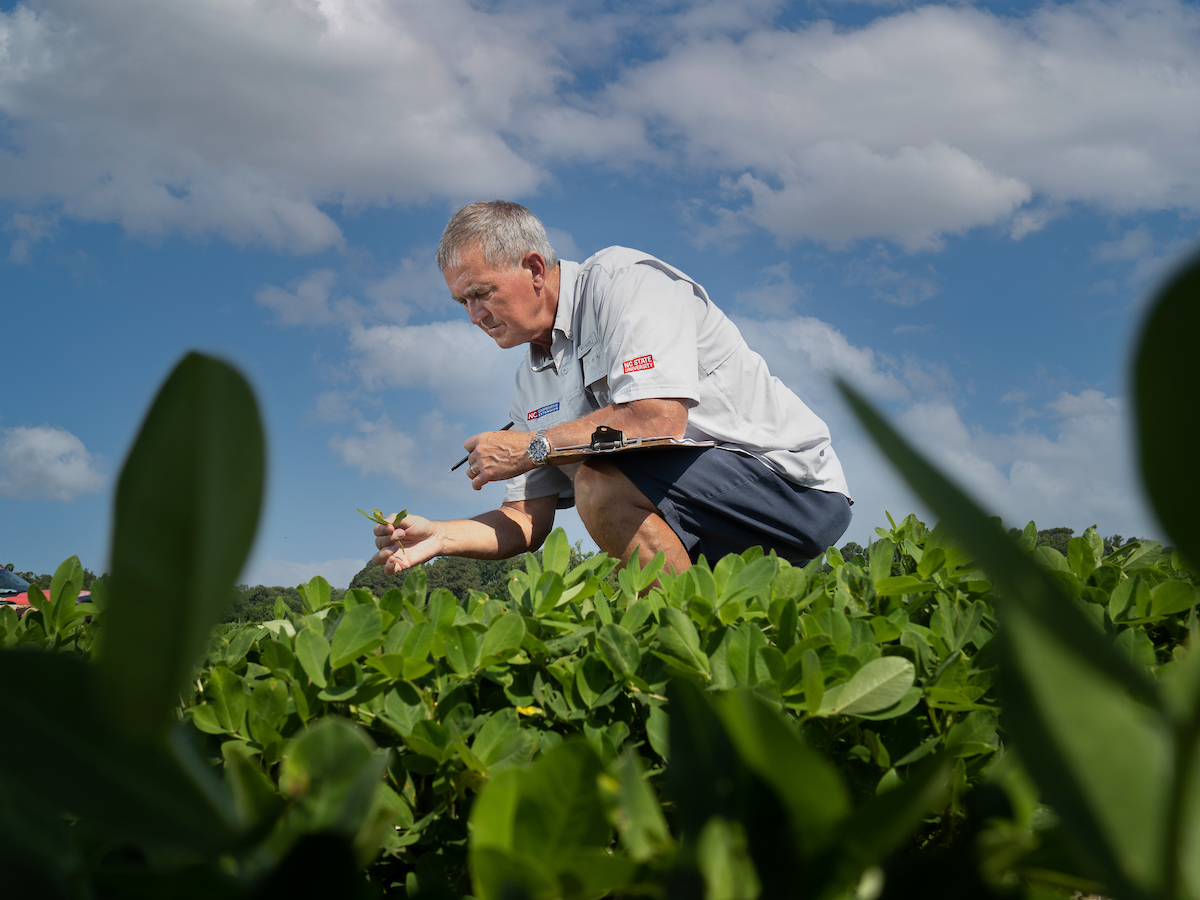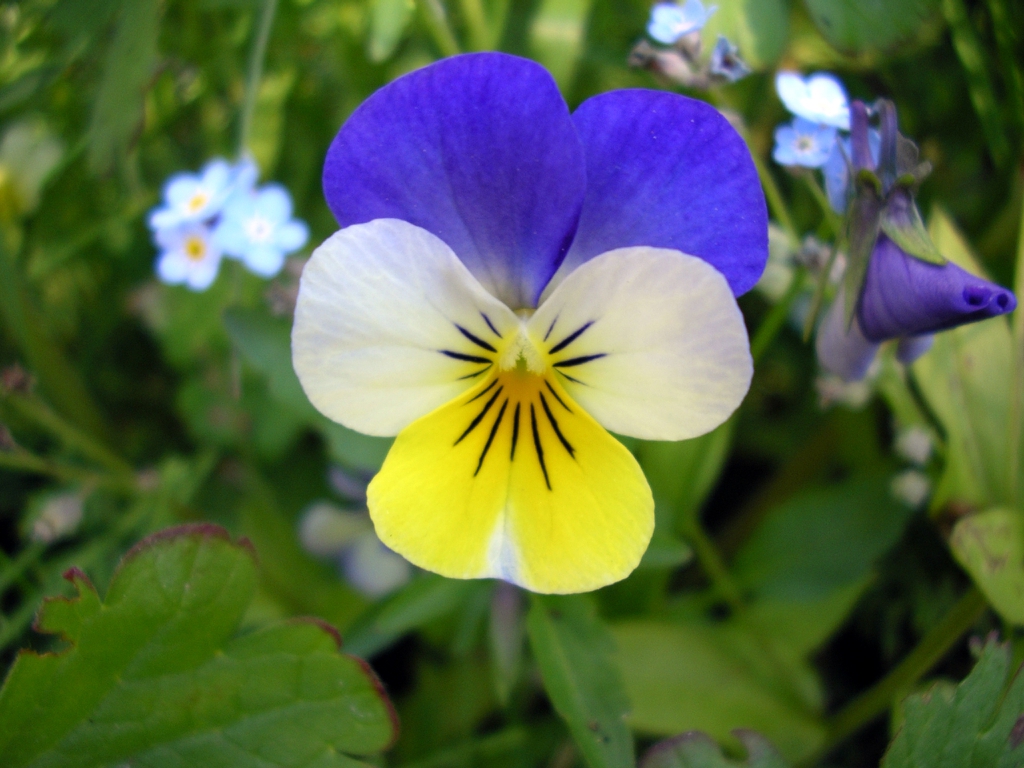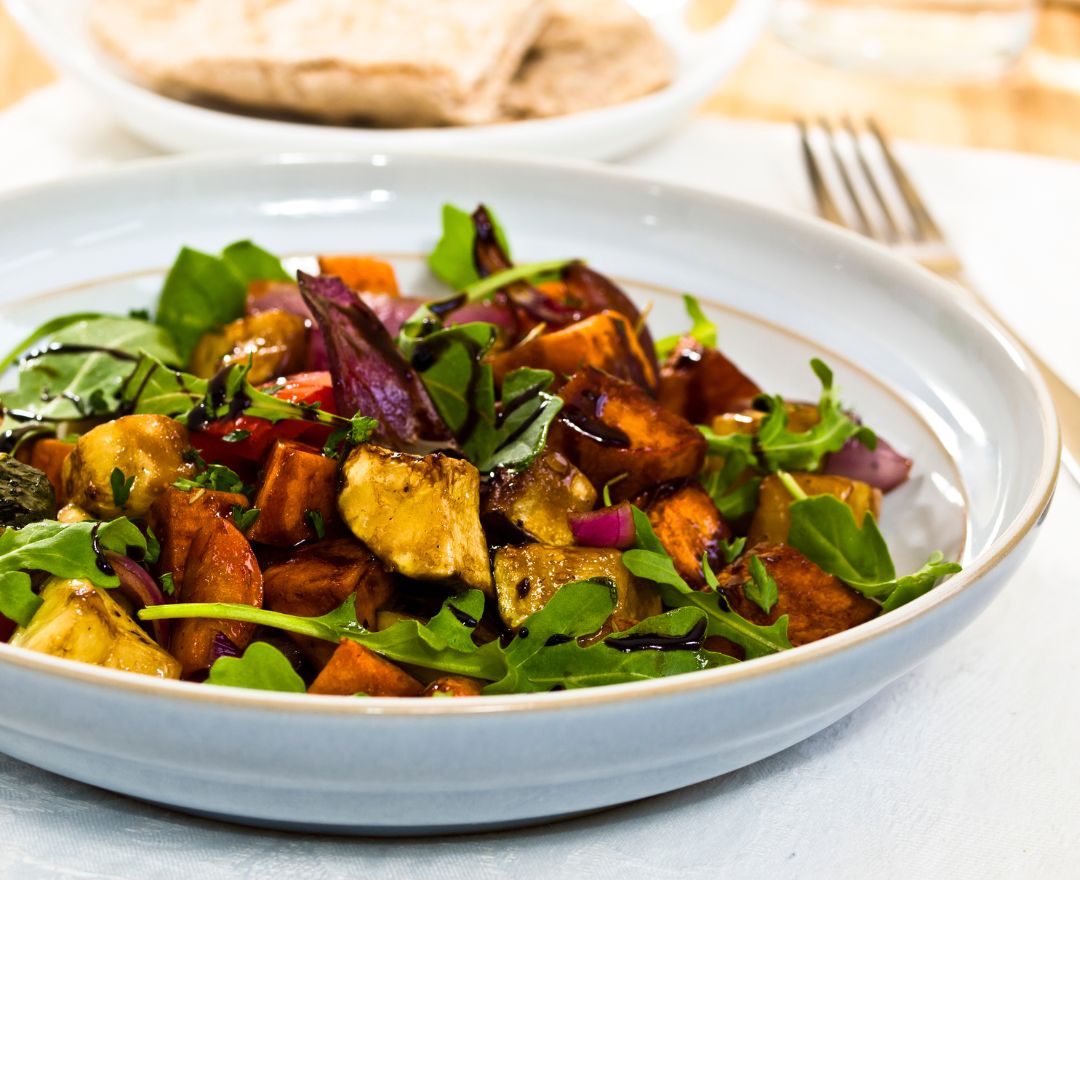|
|
|
|
|
|
|
|
|
|
Monthly Newsletter
October/November 2022
|
|
|
Extension programs and resources are available to all county residents. Feel free to forward our newsletters on to family and friends. Watch out for monthly announcements of events as this newsletter arrives in your inbox each month or keep up with us on Facebook or Instagram.
(If you do not wish to continue getting this newsletter you may unsubscribe at the link below.)
|
|
|
|
|
|
|
|
|

Nickels for Know-HowIt is 2022 which means this is the year for the Nickels for Know-How Referendum. The referendum has been in place since 1948, and the law requires that a new referendum be held every six years.
This year, the Moore County Nickels for Know-How Referendum will be held on Thursday, November 17, 2022 at the County Extension Center in the Moore County Agricultural Building located at 707 Pinehurst Avenue, in Carthage, NC from 8:00 am-5:00 pm.
The purpose of the referendum is to let users and producers of feed or fertilizer decide if they wish to continue the self-assessment program. A 2/3 favorable vote for the Nickels for Know-How program will mean that growers are willing to continue to assess themselves to support agricultural research and education. The assessment is fifteen cents per hundred pounds on feed and fertilizer produced in North Carolina.
Funds of about $1.4 million annually are collected by the North Carolina Department of Agriculture and Consumer Services and then allocated by the NC Carolina Agricultural Foundation, Inc.'s 148 volunteer Board of Directors to support agricultural research and extension projects at North Carolina State University, benefitting agriculture in North Carolina.
For more information on the referendum, please call the Moore County Extension Office at 910-947-3188.
|
|
|
| NC STATE EXTENSION: ECONOMY
|
|
|
You Decide: If Inflation Subsides, is Everything OK?Mike Walden, a William Neal Reynolds Distinguished Professor Emeritus at North Carolina State University and retired Extension Economist, makes good news/bad news predictions on inflation:
First, lowering inflation doesn’t mean lowering prices. It means lowering the rate of increase in prices. The prices we had before the take-off in inflation won’t return for most products and services.
Second, what matters for your standard of living is the purchasing power of your salary. The purchasing power of your salary can be eroded by both inflation and recession. Unfortunately, we may be entering a time period when we have both.
Third – and some good news – is that this time may be different. Rather than suffering big drops in living standards and years before a full recovery is made, today’s pandemic-made economy may short-circuit the pain, thereby resulting in fewer job losses and a quicker rebound in living standards.
Read more about Dr. Walden's explanation on why reducing inflation will not lower prices, but why the current economic landscape is different from previous inflationary cycles, which leaves room for optimism.
|
|
|
NC STATE EXTENSION: HOMEGROWN
|
|
|
|
|
Fall Is Apple Picking Season
With temperatures dropping and leaves changing colors, fall is in full swing in North Carolina. Though there are many fall activities to choose from, including picking pumpkins, apple picking remains a favorite seasonal tradition. October also happens to be National Apple Month, so it’s the perfect time to get pickin’.If visiting an apple orchard, you'll be amazed at the different varieties of apples grown in NC. From green to red to even darker red, there are multiple options.
As Mike Parker, a tree fruit specialist with NC State Extension and an associate professor in the Department of Horticultural Science explains'"When choosing what you’d like to pick, it’s important to know that apples are classified by flavor: sweet, semi-sweet and tart.
Tart apples have a higher acidity-to-sugar ratio, and sweet apples have a higher sugar-to-acidity ratio. Ranging from sweet to tart, each year, there are primarily six to eight varieties grown in most North Carolina orchards. Farmers make growing choices based on consumer preferences. This chart describes the apple varieties you'll find in North Carolina.
Knowing when an apple is ready to be picked is the secret to getting the best flavor an apple offers. Dr. Parker shows how growers determine when to pick apples for peak quality and taste.
Check out your guide to North Carolina Apples at https://cals.ncsu.edu/news/your-guide-to-north-carolina-apples/
|
|
|
|
|
American Beautyberry
American beautyberry,
Callicarpa americana, is a fast growing, native perennial shrub; growing 5 to 8 feet tall and almost as wide. Left unpruned, it has a beautiful arching growth habit. In Greek, the genus name Callicarpa means callos, “beauty” and carpos “fruit”. There are Asian varieties but the berries tend to be smaller. You definitely want to plant the American variety.
Beautyberry performs well in full sun or partial shade and is not particularly fussy about growing conditions. It is disease and pest resistant which is another plus. The outstanding berry display makes it an ideal specimen plant but several of them in a border is awesome. Multiple plantings also ensure better berry production.
Over 40 species of songbirds enjoy the berries which are high in moisture content. In late spring and early summer, inconspicuous flowers of blue, violet, pink, or white are arranged in clusters on the stems between the leaves. In August or September, clusters of purple berries or drupes encircle the woody stems.
Beautyberry is maintenance free as and does not need to be fertilized. Resist the urge to fertilize as it will result in fewer berries. It will benefit from a shovel of compost in the spring. Flowers are produced on new growth so if you have to prune do it in late winter or early spring but left unpruned it make a beautiful arching shrub.
For more information, contact the Extension Master Gardener Helpline at 910-947-3188, Monday-Friday
By: Dolores Muller, EMGV, Moore County
Photo: by Susan Strine
|
|
|
|
|
|
|
Hurry, Only a Few Days Left to Enjoy Fall Produce at from Local Farms
Moore County Farmers' Marketwww.moorecountyfarmersmarket.comDowntown Park, Southern Pines, Saturdays, April 16-October 29, 2022, 8AM-Noon Armory Sports Complex, Southern Pines, Thursdays, Year-Round, 9 AM-1PM (closed Thanksgiving, November 23) Sandhills Farm to TableCommunity Supported Agriculture subscribe @ https://www.sandhillsfarm2table.com/Deliveries from April 20-November 10
|
|
|
See what Moore County farms have going on. Download the Visit NC Farms app to find out where to buy local plants and food, where to eat or drink at local restaurants, breweries and wineries, or where to tour local farms and learn about agriculture in Moore County.
|
|
|
|
|
Hoof Care for Small Ruminants
Hoof care is a significant part of raising livestock. Horses need their hooves done every 4-8 weeks, dairy cows yearly, and sheep and goats every 3 to 6 months. This critical step is often overlooked or forgotten, leading to lameness and infections such as foot rot.
How often hooves need to be trimmed depends on the environment in which the animals live. Sheep and goats that live in softer environments such as pasture or sand will need more frequent hoof maintenance. However, when they live in environments that have more rocks or climbing material, they will need less trimming
because they will wear down more quickly. If you have a goat play set, adding shingles or non-slip steps will help wear down the hooves, increasing the time between trimmings.
Preventive maintenance will reduce the amount of overgrowth, allowing the animal to walk correctly. When trimming, the hoof should be shaped so that it is flat on the bottom, side walls, and heels and follow the same angle as the hairline. While trimming, remove all manure, dirt, and rocks from the hoof.
Trimming hooves is a great time to check for abnormalities such as abscesses, foot rot, stuck materials, etc.
For
additional information contact Tom Shea, Moore County Livestock Agent, NC Cooperative Extension Service, Moore County Center
|
|
|
|
|
|
|
|
|
|
|

Fall Fever
It’s the time of year for pumpkins, pansies, and mums. It’s also time to get your perennial plants in the ground. Spring is a good time to plant, but by putting your plants in the ground in fall, you give them a better chance to develop roots before the stress of summer sets in.
In recent years, we’ve seen more periods of excessive heat and drought during summer months. Even with enough water, plants still struggle to get by. With stronger, deeper roots, your perennial plants can make it through stressful times more easily.
You might be thinking, “Well what about these early fall
freezes? Won’t that injure my plants?” In the short term, the foliage might show signs of cold injury, but the roots will be just fine. Since the roots are buried underground, they are protected. Soil is much better at maintaining a steady temperature than air is. Even though we had a fall freeze earlier than normal, the soil temperature did not drop below freezing and probably won’t until at least January.
When soil temperatures start to go below 40°F, roots do start to slow
their growth, but they’re still growing. There’s about a month in the year where we get soil temperatures low enough to slow growth a little, but otherwise, we’re getting a jump on root growth that will help those plants through the following summer.
Now that you’re ready to get planting, here are a few tips and tricks:
1.Some garden centers will lower their prices this time of year to decrease the amount of stock that they have to keep alive until next spring.
2. When you plant, don’t worry about fertilizing until spring, because that will increase foliage growth rather than root growth.
3.To decrease soil temperature fluctuation, add a 2-inch layer of mulch around the base of your plant.
Most people have heard of Spring Fever, when everyone is itching to get outside and work in their gardens after being cooped up during the cold, winter months. I’d like to start a new trend, Fall Fever. Let’s go get some perennials and start planting!
Savanah Laur, Horticulture Agent
NC Cooperative Extension Service, Moore County Center
|
|
|
HEALTH, NUTRITION & FOOD SAFETY
|
|
|
 A Toast to Roasted Vegetables Roasting is a very popular cooking technique for the holidays. It uses dry heat to circulate food around the food, cooking evenly from all sides. You don’t need a lot of specialized equipment to roast. All you need is a shallow-sided pan and a meat thermometer. This slow cooking method develops a lot of caramelized-flavor with very minimum effort; perfect for quick family meals, not just for holidays. One of the easiest recipes I have ever done in Extension is a roast
chicken recipe from our Cook Smart Eat Smart program. Just season the meat with salt and pepper and stick in the oven. It doesn’t get any simpler than that. To round out a meal, throw some vegetables in the pan too. But don’t think you need meat to roast a pan of veggies. During the cooler months of the year, you should be roasting vegetables every week. This delicious accompaniment goes with everything. Serve you roasted veggies in a grain bowl or salad for an extra serving of veggies for lunch. Or my new favorite, serve them with a fried or poached egg for breakfast. In the event you have too many roasted vegetables, combine leftovers with eggs in a muffin tin and have a quick grab and go breakfast quiche in the morning. To roast vegetables, cut into equal sizes for even cooking. Simply toss in olive oil, salt and pepper, or add your favorite seasoning. Another delicious trick is to toss in a sweetener like maple syrup, honey, balsamic
vinegar, or even molasses. The flavor combinations are endless. Below are some of my favorite roasted vegetable ideas. Remember that increasing vegetables in your diet improves your health. Try some of our Med Instead of Meds recipes such as oven roasted butternut squash, roasted brussels sprouts, oven roasted vegetables, and spicy roasted cauliflower. For other tips on staying healthy during the holidays, sign up for the Holiday challenge. Hundreds of North Carolinians participate every year to learn how to be healthy during the holidays and avoid
weight gain. Another way to prep for the holidays is to take one of the upcoming free canning classes. Sign up on Eventbrite. Favorite combos: - Sausage links with acorn squash and cabbage and mustard
- Sausages with bell peppers and onions
- Sweet potato, butternut squash, red onion, celery, rosemary with fried egg
- Broccoli and lemon
- Beets, carrots, and leeks with tamari and feta
- Mushrooms and green beans
Easy Roast Chicken: Ingredients - 1 (3-4 pounds) whole chicken
Instructions - Preheat oven to 350°F.
- Remove giblets from chicken; reserve for later use.
- Remove large pouches of fat from chicken.
- If you are using a rack, place the rack in the bottom of the roasting pan. If you are not using a rack, lightly oil the bottom of the roasting pan.
- Place the chicken in the roasting pan breast side down.
- Put the roasting pan in the oven so that the chicken is centered in the oven space.
- Cook for 40 minutes.
- Turn the chicken over and cook for another 10-15 minutes.
- Test for doneness using an instant read thermometer in the thigh not touching the bone -- 165°F.
- Let the chicken rest 5-10 minutes.
Roasted VegetablesIngredients Vegetables: Choose 4 cups of one of or more (broccoli, red potatoes, sweet potatoes, carrots onions, peppers, eggplant, zucchini, squash,
acorn or butternut squash squash, beets, cauliflower, green beans, brussel sprouts, cabbage, rutabaga.) Spices: Choose 2-3 teaspoons of one or more (chili powder, rosemary, cumin, grill seasoning, curry powder, chinese 5 spice, tarragon, italian seasoning, sage, parsley, cinnamon) Oil: Choose 1 tablespoon (olive oil, canola oil, corn oil) Directions - Select one or a combination of vegetables and toss with 1 tablespoon of olive or canola oil, 2-3 teaspoons of one or a combination of spices.
- Place on a non-stick cooking pan and roast at 375°F for approximately 40 minutes or 425°F for 20-25 minutes. You may want to place foil on the pan for easier clean up.
Suggested Combinations - sweet potatoes: chinese 5 spice, cinnamon
- red potatoes: garlic,
rosemary
- eggplant: garlic, italian seasoning
- carrots: grill seasoning, parsley
- acorn squash: cinnamon, chili powder
Janice Roberts, Family & Consumer Sciences NC Cooperative Extension Service, Moore County Center
|
|
|
|
|
|
|
|
|

Mane Achievements for Ponies of the Pines The Ponies of the Pines 4-H Horse Club is excited to announce achievements from their summer events and programs. This club was newly founded in Spring of 2022, and currently has over 15 members attending their monthly meetings.
During the Summer season the club members went to a qualifying show at the district level. The 4-H South Central District Qualifying Horse Show was held in Lake Waccamaw, NC on May 13th -15th. 4-H members attending included Isabelle Cherrey, Keara O’Connor, and Mckenzie Pate. These members all qualified in both Western and English disciplines to attend the State 4-H Horse Show in Raleigh, NC on July 6th -10th. All members placed well in their
respective disciplines and show classes and had fun throughout the event. The 4-H Ponies of the Pines Horse Club also participated in the stall decorating contest with a “Candyland” theme. During the 4-H State Horse show, club members competed in the 4-H Horse Artistic Expression contest. During this competition youth may submit horse photos, drawings, and handmade items of their choosing. Ella Vest placed 1st in the Junior division short story category and 4th in the junior division drawing category. Ella Root placed 6th in the junior division digitally enhanced photography category and Keara O'Connor placed 4th in the junior sewing category. The club members held a picnic social at Thagards Lake in Whispering Pines on July 31st and enjoyed swimming, paddle boarding, and kayaking.
If you would like to join the 4-H Ponies of the Pines Horse Club please contact the club leader Jackie Acha at 252-723-1554 or bucknrun@yahoo.com. Meetings are open to all youth 5-18 years of age and you do not need to own a horse to participate in monthly meetings or programs.
|
|
|
|
|
|
|
Read more Moore County Extension news »
|
|
|
|
|
NC State University
and N.C. A&T State University work in tandem, along with federal, state and local governments, to form a strategic partnership called N.C. Cooperative Extension.
Accommodation requests related to a disability should be made at least 5 days before the scheduled event
|
|
|
|
|
|
|